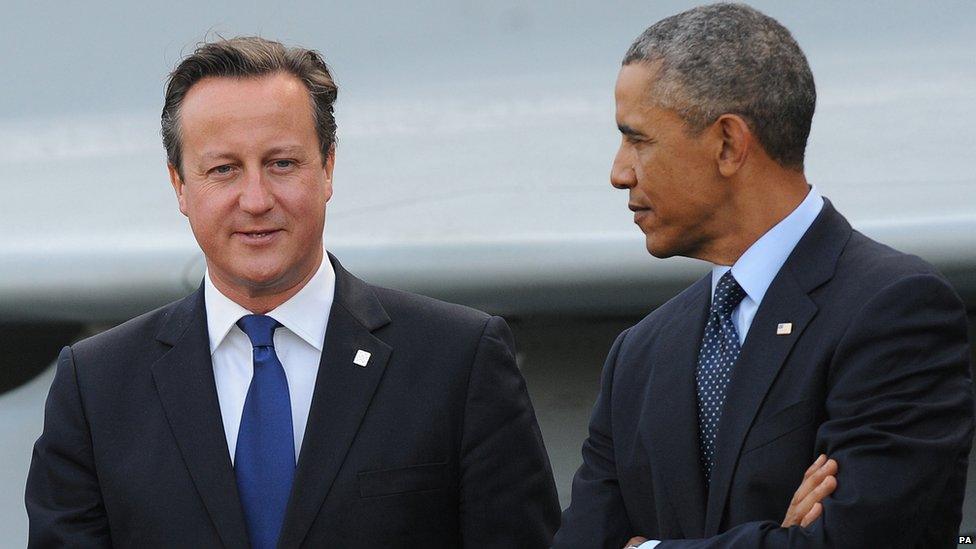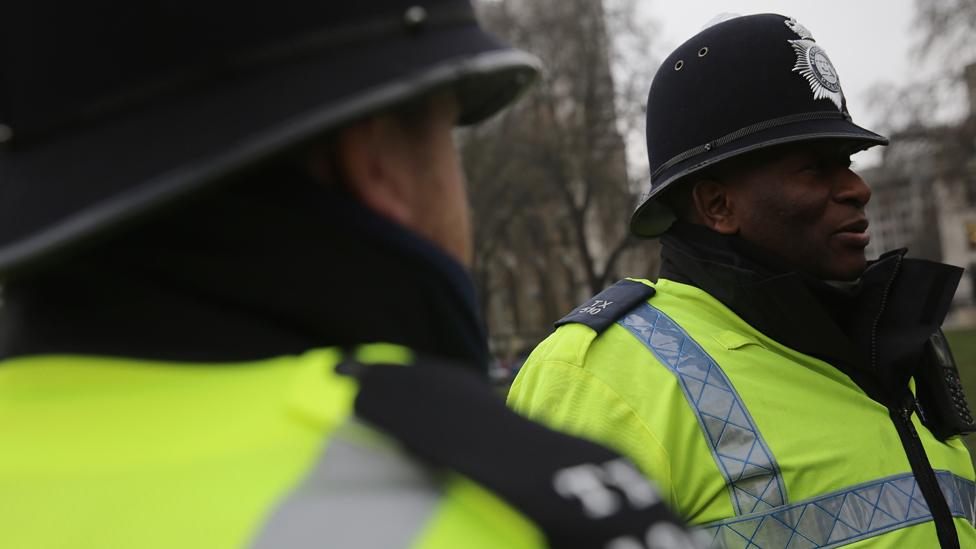How politicians learned the power of the gentle nudge
- Published
- comments

Politicians spend a lot of their time trying to change the way we behave. They pass laws, ban stuff, use tax and benefits to encourage us to do what they want.
But for the last five years the British government has had another way. You may have had your behaviour changed without even realising. They've been nudging you.
If you've recently been on the dole, you may well have been nudged. The Behavioural Insights team was asked if they could get more unemployed people to turn up for job interviews.
First, they tried sending a simple text, telling claimants about an interview:
Eight new Customer Assistant jobs are now available at Tesco. Come to Bedford Jobcentre on Monday 10 June between 10am and 4pm and ask for Sarah to find out more.
About 11% turned up. But then they added the claimant's first name:
Hi Sam, eight new Customer Assistant jobs are now available at Tesco. Come to Bedford Jobcentre on Monday 10 June between 10am and 4pm and ask for Sarah to find out more.
The percentage rose to 15%. But when the JobCentre adviser signed it and wished the claimant good luck...
Hi Sam, eight new Customer Assistant jobs are now available at Tesco. Come to Bedford Jobcentre on Monday 10 June between 10am and 4pm and ask for Sarah to find out more. I've booked you a place. Good luck, Michael.
…the proportion turning up rose to 27%.
The personal touch was so successful it is now used in every job centre in the country.
It all began in 2008 with the publication of a book on behavioural economics, Nudge, written by US academics Cass Sunstein and Richard Thaler.
It became holiday reading for numerous political leaders, Barack Obama and David Cameron among them. Politicians loved the idea that there might be dirt-cheap ways to influence people to "do the right thing".

Cameron and Obama were both interested in the ideas expressed in the book Nudge
When the coalition came to power in 2010, the "nudge unit" (as it inevitably became known) was set up in Downing Street, coming up with clever nudges for ministers. For the past two years it has been outside Whitehall, run as a social purpose company.
One nudge they are particularly proud of is an intervention encouraging black and minority ethnic (BME) people to apply to become police officers.
One big hurdle appeared to be an online "situational judgement test" - 60% of white applicants successfully completed it but only 40% of BME. So the recruitment letter was changed.
Before the change it began "You have been invited to complete the following online assessment" and warned: "Please note there no appeals process for this stage."
The new version began "Congratulations!" adding that the applicant had been "selected to participate in the next stage of the assessment process".
The next paragraph then asked the applicant to consider why they wanted to join the police. "What is it about being a police constable that means the most to you and your community?"
The white pass rate didn't change with the new letter. But the BME rate rose to more than match it.

The Behavioural Insights team believes it has helped increase the number of black and minority ethnic police officers
The Behavioural Insights team claims success in reducing the drop-out rate from adult education classes, getting the elderly to switch to a cheaper energy supplier and encouraging students from poor backgrounds to apply to university.
One very lucrative nudge (for the Treasury) was an attempt to get rich people to pay tax they owe.
Among the richest 1% of earners owing more than £30,000 to the taxman, the standard letter threatening legal action saw 39% of people quickly settle their debt.
But send them a letter pointing out their taxes improve local services, and the number rises to 47%. If the letter says that without their tax some local services might disappear the figure jumps again - to 56%. This tiny change in the wording saw £210m in overdue tax paid to the Treasury.
The Behavioural Insights team now sells its expertise to governments around the world. In Guatemala, they've done wonders in increasing the country's tax take. In Australia, they've got people to pay their fines. And in Moldova, they nudged TB patients to take their medication.
We will still need laws and if you don't trust your government, you won't trust its nudges. Some think the whole idea is paternalistic at best and downright sinister at worst.
But the nudgers say there's nothing underhand about what they are doing. Everything is transparent - and no-one has to do anything they don't want. Much of it is about making public services easy-to-use and personal - encouraging us to do the right thing.
Whatever you think about nudging, it is clear that politicians have found a new way to change our behaviour.
Subscribe to the BBC News Magazine's email newsletter, external to get articles sent to your inbox.